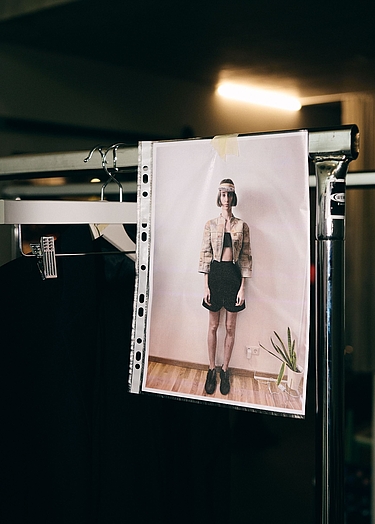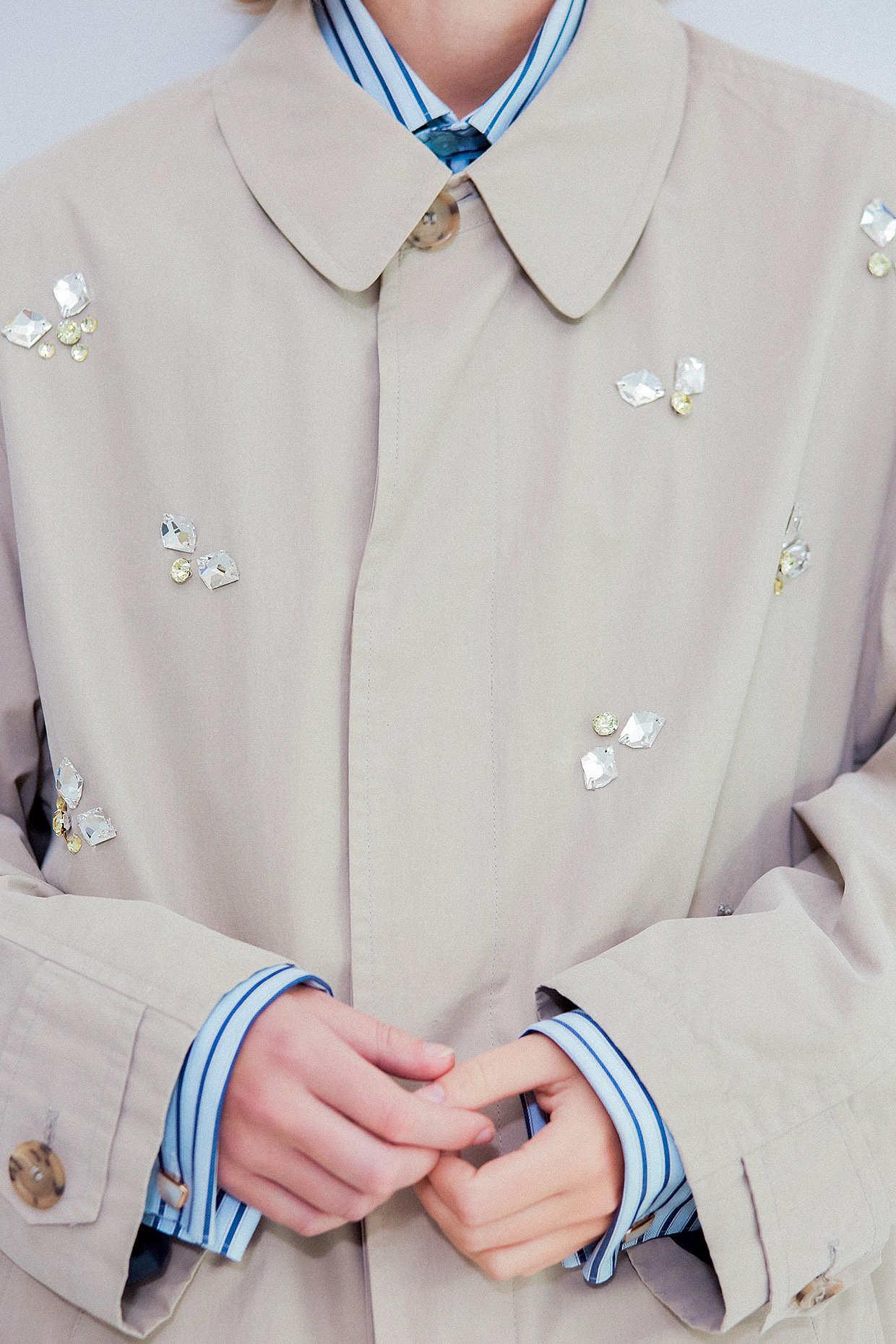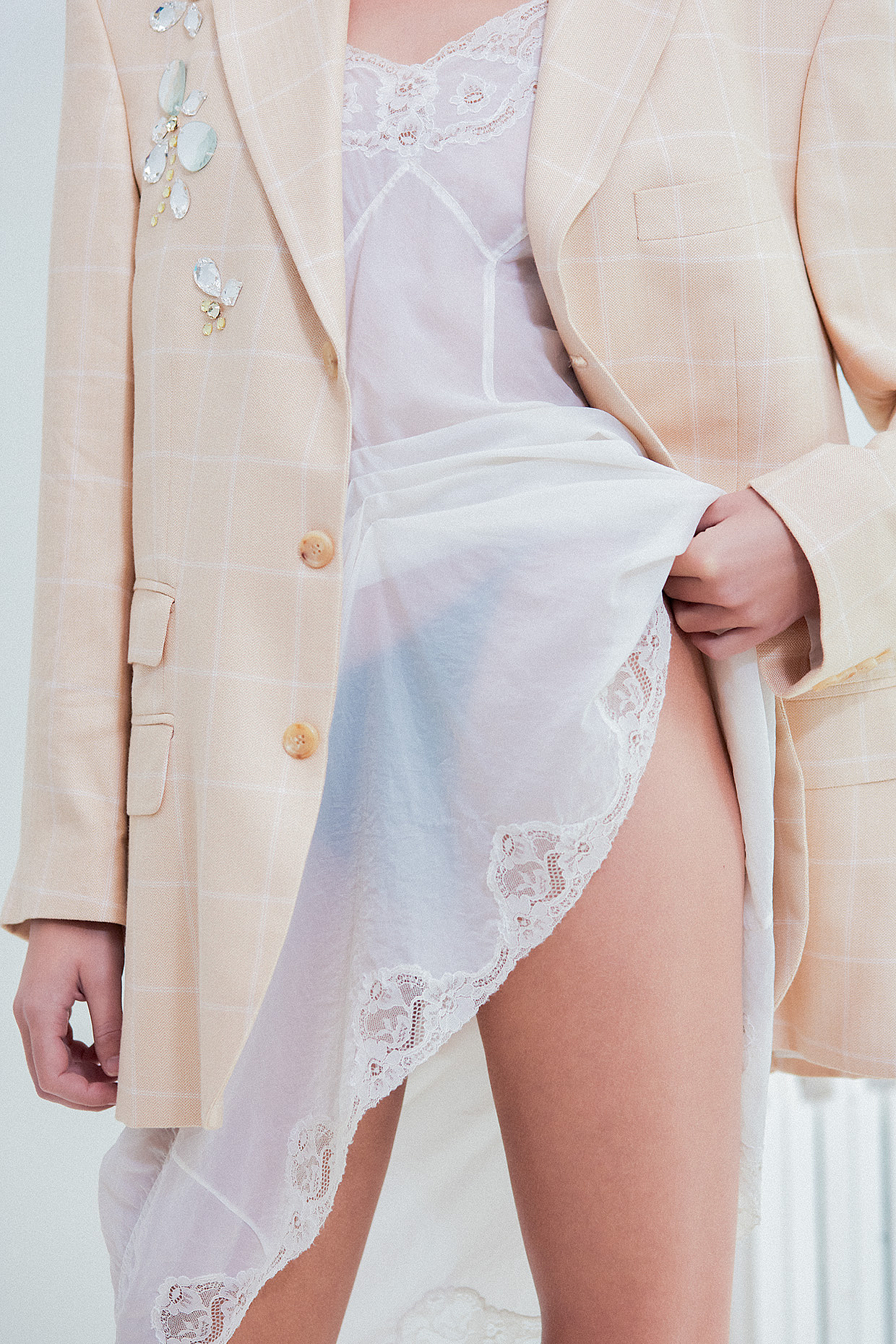
Interview

Anne Bernecker is a designer, trend consultant, and educator – and has been a prominent figure in the international fashion scene for many years. A graduate of Central Saint Martins in London, she brings with her a wealth of experience, having collaborated with renowned brands such as Versace and Temperley London. Her passion for sustainability and innovation is not only reflected in her work but also in her latest achievement: membership in the Fashion Council Germany (FCG). We spoke with Anne Bernecker about 'Slow Couture', the beauty of upcycling, and her personal vision for a better fashion industry.
Congratulations on your membership in the Fashion Council Germany (FCG), dear Anne! Could you tell us how this came about and what significance this step has for you and your work?
I had the opportunity to showcase my work at the Berliner Salon during Berlin Fashion Week three times already. There, I met other designers who were already members. Membership in the Fashion Council, which passionately advocates for German designers and the fashion industry, proves to be extremely valuable. As part of the council, we can not only contribute our own ideas but also benefit from a comprehensive overview of competitions, networking events, and, of course, Fashion Week.
Under the motto "Reuse, Reinvent, Revive," you celebrate the aesthetics and history of recycled clothing with your Slow Couture. How did this idea come about, and what inspired you to take this sustainable approach?
My 15 years of experience as an internationally active designer, including for Versace and Temperley London, confronted me with significant resource wastage, in which I was also involved. The decision to develop my own collection quickly led to the realization that newly produced fashion is not necessarily necessary. Given the overproduction and oversupply, it was important to me to enhance existing items and extend their lifecycle.

"My 15 years of experience as a designer confronted me with significant resource wastage, in which I was also involved."
Tell us about your first unforgettable moment in the fashion world.
There are many: Opening the fashion show at Central Saint Martins in London in 1997 with my collection, for example. Or collaborating with Donatella Versace and presenting my designs at Milan Fashion Week. Special highlights of my own collection were the premiere at the Dach Showroom in Paris in October 2022 and the first participation in the Berliner Salon in January 2023.
The foundation of your collection consists of vintage clothing pieces. Can you tell us how and where you find these special pieces?
Part of my ressources come from my mother's second-hand store. Additionally, I work with a dry cleaner who gives me unclaimed shirts and jackets. Second-hand platforms and flea markets are also important sources for me.
Is there a particularly outstanding piece that you have worked on, and where did it come from?
The 'Dorothea Shirt' is probably one of the most significant pieces. It was made from old handkerchiefs belonging to the late grandmother of my childhood friend Kirsten, who didn't want them to go to waste.
Craftsmanship, especially couture embroidery, plays a central role in your work. What is the collaboration like with local artisans, and why is this cooperation important to you?
I collaborate with a renowned embroidery company in Mumbai, the center for hand and couture embroidery, where major fashion houses like Dior, Valentino, and Burberry also produce. However, part of the collection is hand-embroidered in Berlin with beads from a Parisian shop.
You also collaborate with an Indian company that is part of the Utthan NGO program, which advocates for improving the working conditions of embroidery workers. How has this collaboration influenced your view on sustainable production and social responsibility?
Sustainable production and social responsibility have been part of my brand DNA and my collection concept from the beginning.
What major trends are currently emerging in the fashion world?
Sustainability is at the forefront of contemporary fashion discourse. A critical attitude among consumers, especially Gen Z, puts pressure on the industry to establish more sustainable practices. In my role, I see myself as both an educator and a catalyst for change
"A critical attitude among consumers, especially Gen Z, puts pressure on the industry to establish more sustainable practices."
What societal, consumption, and lifestyle trends do you currently see affecting fashion, and how can designers respond to remain relevant?
We live in a time of saturation. Too much information, too much social media, and above all, too much fashion or clothing. This constant saturation overwhelms, so in my opinion, unique and one-off pieces become more important. Isn't it true luxury to own something that is unique and not produced and consumed en masse?
“We live in a time of saturation. Too much information, too much social media, and above all, too much fashion or clothing.”
Many protagonists of the Berlin Fashion Week have embraced the theme of sustainability. What are your observations here? Are there designers we should pay special attention to, in your opinion?
Even a collection produced, for example, from organic cotton requires new raw materials to be grown and consumed. That's why I find all brands focusing on upcycling, like SF1OG, as interesting.
Can you tell us about your current and future projects?
My goal is to carefully develop my label, expand my customer base, broaden my network, and break traditional processes in the fashion industry. In retail, I aim to establish personal relationships with selected stores that appreciate and understand my products and also want to explore new paths.

"My goal is to break traditional processes in the fashion industry."
What is your personal wish for the fashion industry?
I wish for a rethink regarding established processes and structures, more sustainability in commerce, greater appreciation for labor and resources, and a deeper recognition of fashion itself.